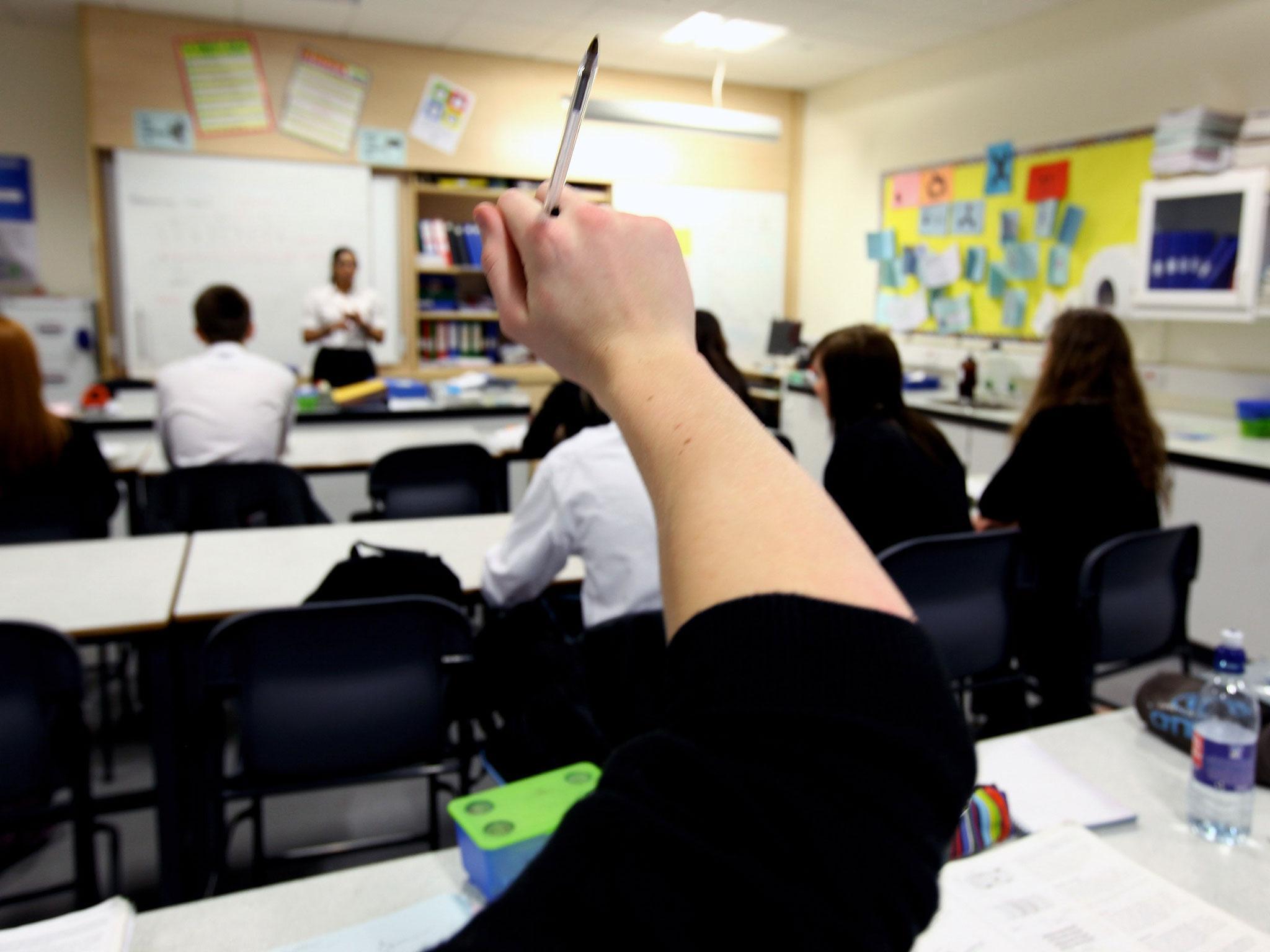Best places in the world to learn science and maths revealed
Top rankings dominated by countries including Singapore, South Korea and Japan, with no significant advancements in England's performance

Your support helps us to tell the story
This election is still a dead heat, according to most polls. In a fight with such wafer-thin margins, we need reporters on the ground talking to the people Trump and Harris are courting. Your support allows us to keep sending journalists to the story.
The Independent is trusted by 27 million Americans from across the entire political spectrum every month. Unlike many other quality news outlets, we choose not to lock you out of our reporting and analysis with paywalls. But quality journalism must still be paid for.
Help us keep bring these critical stories to light. Your support makes all the difference.
Singapore has achieved the highest global education rankings for primary and secondary school pupils in maths and science, according to a new study.
The Trends in International Mathematics and Science Study (TIMSS), published every four years by the International Association for the Evaluation of Educational Achievement (IEA), assessed the performance of more than 600,000 children aged nine to 10 and 12 to 14 in 57 countries worldwide.
Primary school pupils in Northern Ireland ranked sixth for maths, the highest score of any European country.
England’s performance remained above average, but did not make any significant advancements since the last study four years ago, despite ministers’ ambitions to tackle “stagnating” performance.
The top rankings were dominated by East Asian countries including South Korea and Japan, taking a hearty lead over their European competitors, a major motivation in UK plans to overhaul the schooling system.
“The results are quite encouraging, despite it being well known that teachers are stressed at the moment with higher workloads and a shortage of staff. There’s been lots of structural changes to the sector which perhaps takes away from the need to focus on teaching quality rather than curriculum changes,” Shaun Reason, chief executive of the Association for Science Education, told The Independent.
“Science has not really declined so we’re keeping up with things but we could be better if there was greater emphasis on teachers being treated as proper professionals by Government. The issue is the lack of science teachers and the need to bring in teachers who are not qualified because of this shortage.”
England has fallen down in maths by one place at both primary, from ninth to 10th, and secondary level, 10th to 11th since the last TIMMS study.
"The period between 2011 and 2015, under Michael Gove, saw major changes to school structures, the curriculum, teacher training, and assessment, and so one might have expected to see some impact from these changes," Ben Durbin at the National Foundation for Educational Research told the BBC.
Singapore was ranked at number one for secondary maths with South Korea, Taiwan, Hong Kong, Japan and Russia taking the next five places.
Kazakhstan was ranked at number seven, ahead of Canada, Ireland, United States and England.
In science, England's primary pupils remained in 15th place, but rose from ninth to eighth place at secondary level since the last study.
“Primary science has fluctuated but in secondary schools, science ranking has remained stable for the last 20 years. In primary education, a focus on numeracy and literacy due to Government accountability measures has taken the focus away from science,” Mr Reason told The Independent.
“Headteachers become like football managers and they are judged by their results. Their careers are made, or broken, by those results.”
Primary maths rankings saw Singapore again clinch the top spot, with Hong Kong, South Korea, Taiwan and Japan following closely behind.
Number six was Northern Ireland, the highest-ranking European country, followed by Russia, Norway, Ireland and England.
In 2007’s rankings, England was positioned at number six for primary maths, currently held by Northern Ireland.
"The new more demanding primary maths curriculum began to be taught in schools from September 2014, and we expect future TIMSS surveys to reflect further progress," said England’s school standards minister Nick Gibb.
However, National Association of Head Teachers leader Russell Hobby said staff shortages of specialist teachers in maths and science were denying England a place in the “premier division” of international education.
Despite Singapore's international success in tests, concerns have been raised about the pressure on young students to achieve.
The Ministry of Education in Singapore produced an advert in September with a message that education is more than about getting top grades in a bid "reinforce the holistic development of students."
In secondary science, Singapore was ranked number one, ahead of Japan, Taiwan, South Korea and Slovenia.
In number six was Hong Kong, followed by Russia, England, Kazakhstan and Ireland.
Finland, which has often been looked to as a model for school improvement, was noticeably absent from the rankings.
In primary science, Singapore was awarded the top spot followed by South Korea, Japan, Russia and Hong Kong.
Taiwan came in sixth place, followed by Finland, Kazakhstan, Poland and the United States.
Subscribe to Independent Premium to bookmark this article
Want to bookmark your favourite articles and stories to read or reference later? Start your Independent Premium subscription today.
Join our commenting forum
Join thought-provoking conversations, follow other Independent readers and see their replies
Comments